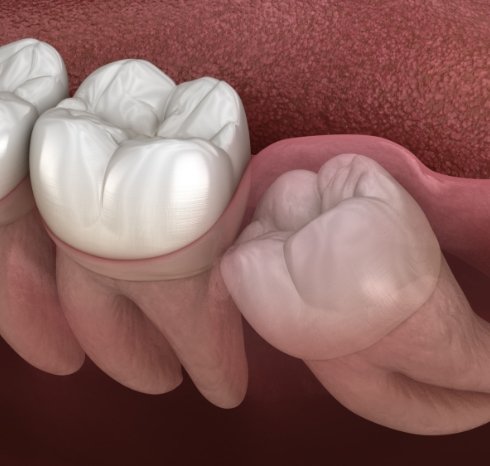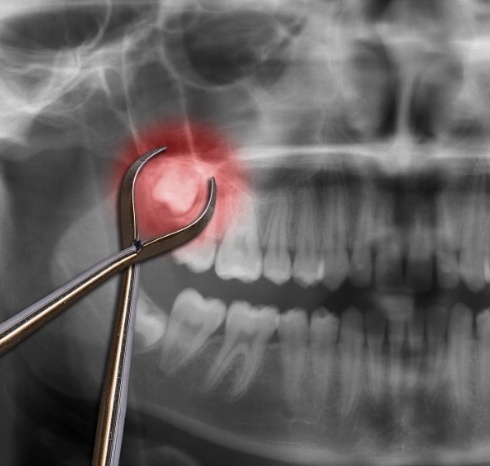Third molars, also called wisdom teeth, are the last teeth to develop in the mouth–usually appearing behind the upper and lower second
(or 12-year) molars. They are called "wisdom teeth" because they usually appear during a person's late teens or early twenties
(which has historically been called the "age of wisdom"). Not all wisdom teeth need to be removed, but if your dentist informs you
that yours do need removing, it’s likely because they currently pose a threat to your oral health or because they could cause problems in the near future. With their safe removal, you’ll be able to rest-assured that your smile won’t be in harm’s way. To learn more about your wisdom teeth and why they may need removal, read below.

Wisdom teeth are the very last teeth to appear in your mouth that erupt in the back upper and lower arches. Not everybody is born with them, but those who do have them can have anywhere from one to four and, in some cases, even more. Wisdom teeth can cause short-term or chronic oral health problems if you don’t have enough room in your mouth to adequately accommodate them.

Most dentists recommend removing your third molars as a preventive measure to make sure you don’t encounter any painful or costly oral health problems in the future. Many wisdom teeth also erupt in an impacted or crooked position, which can cause intense discomfort or damage to surrounding teeth. If your dentist recommends having them extracted, our team can comfortably and gently remove them to give your smile a better chance at maintaining lifelong health.

Maintaining great oral health comes with countless benefits to your overall wellness, and it ensures that you’ll be able to continue enjoying your beautiful smile. By getting your wisdom teeth removed, you may be able to avoid some of these potential issues:

If your wisdom teeth need to be extracted, you may be experiencing one or more of these symptoms:
If you notice any of these signs, visit your dentist as soon as possible so they can alert you as to whether or not your wisdom teeth need to be removed.

A dry socket is a term to describe an unpleasant, but not serious, post-operative condition or surgical side effect. It usually occurs 24-36 hours after surgery but can occur 48-72 hours later. An increasing amount of throbbing pain around the affected socket, which may radiate up to the ear or through the entire jaw, is an indication that you may have a dry socket. It is usually not accompanied by swelling or drainage from the extraction site. To alleviate the pain from a dry socket you may use the prescription pain medication. If it alleviates the pain then the dry socket is minor and will not require any additional treatment. If the pain medication does not affect the pain, you should contact Dr. De Simone. Dr. De Simone may determine to treat the dry socket at the office with a medicated dressing, which will help relieve the pain.

Here are six helpful ways to prevent dry socket from developing after your wisdom tooth extraction:
Dental Implant Placement Intravenous "IV" Sedation Dental Extractions Infection Control & Sterilization View Our Services